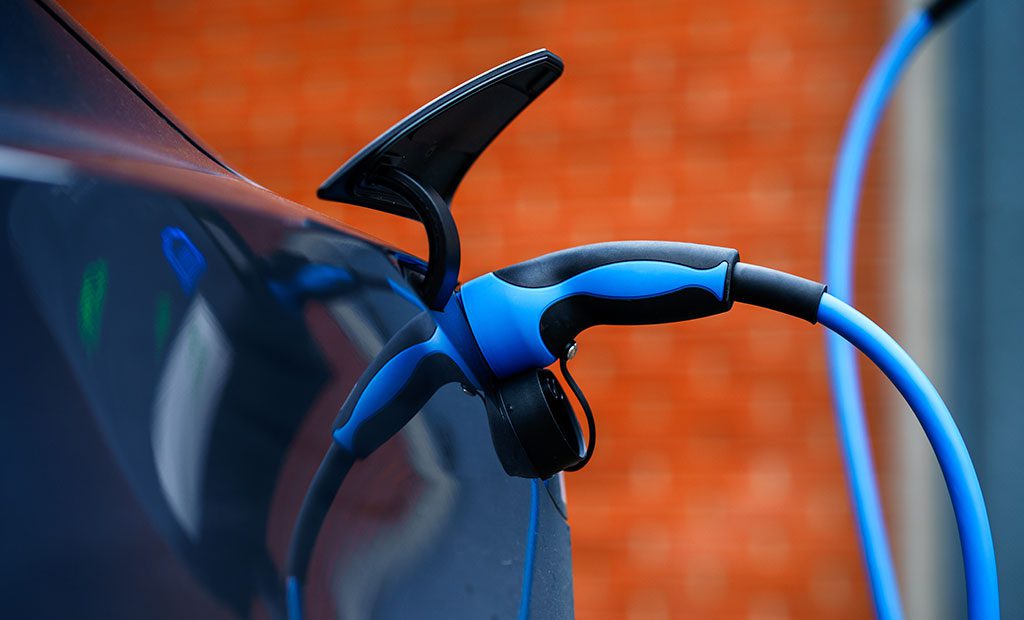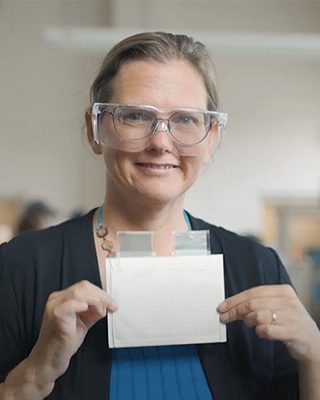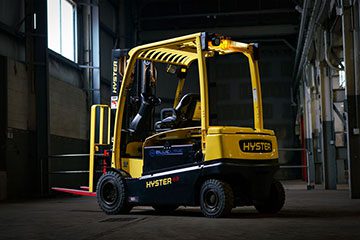
Wisconsin companies are already starting to play a key role in the electric vehicle industry with their groundbreaking innovations and established manufacturing supply chain; a recent report spells out priorities to help the state fulfill its potential.
Wisconsin has the potential to emerge as a worldwide player in the manufacture of electric vehicles (EVs) and related equipment by making strategic investments in expanding the EV supply chain, according to a report commissioned by WEDC.
That finding comes as Wisconsin companies are already responding by innovating and expanding to meet a burgeoning demand for new technologies to advance the accelerating transition from internal combustion engines to EVs.
The report also coincides with WEDC’s efforts to bolster the emerging sector with a variety of economic development tools to help in that transition.
The report finds that there is a “tremendous opportunity for Wisconsin to develop a globally competitive cluster centered on the manufacture of EVs and EV-related equipment, which in turn can help revitalize Wisconsin’s automotive manufacturing industry.”
That industry was recognized as one of the state’s greatest economic assets, one that employs about 92,000 people statewide.
But the report, prepared by the Center on Innovation Strategy and Policy at SRI International, notes that challenges also lie ahead: It says the sector must reinvent itself and look to the future by becoming part of the growing EV supply chain.
“For Wisconsin to develop a thriving and dynamic EV manufacturing cluster, the state will need to mobilize its immense base of assets and coordinate its activities and investments in a way that produces sustainable growth conditions for the industry,” the report says.
The report notes that Wisconsin’s automotive suppliers are less vulnerable to the disruption caused by a shift to EVs because they manufacture components for both internal combustion and EV products. Most of the state’s larger automotive suppliers are already adapting to the EV transition, but the report found that the state needs to help smaller suppliers make comparable investments.
The report made six major recommendations, including:
- Enhancing productivity through automation and upskilling
- Upscaling the middle-skill workforce pipeline by investing in workforce training through the state’s technical college system
- Improving manufacturers’ access to regional, national and global EV markets
- Building connections between innovators and industry through research collaborations, mentorship networks, and student and entrepreneurial support
- Aligning EV policymaking with state economic development interests
- Preparing for the future of mobility and sustainability
In a recent radio interview on the topic, WEDC Secretary and CEO Missy Hughes said Wisconsin’s traditional strength in the automotive arena positions the state well to capitalize on current trends.
“Detroit and Michigan are making the transition to building cars that are electrified, but they’ve always accessed Wisconsin’s manufacturing,” she said. “That’s why we’re really focused on the supply chain for electrification.”
The report calls for Wisconsin to bring together longstanding relationships among government, education, and business to tackle the challenges of a growing and transitioning market.
“As our businesses explore these new markets, we need to have the tools to help them invest and mitigate the risk associated with leaping into transitioning markets,” Hughes said.
WEDC will play a key role in helping attract new businesses and aid those that are already faced with shifting to producing parts and equipment for the EV market.
“They’re making parts for a current market and have a chance to grab onto a new market,” she said. “They might need new machinery; they might need to have their workforce to be skilled up. So, we’re really diving into how we can assist that.”
Hughes also noted that Wisconsin is emerging as a leader in the development of battery power and storage systems. Several firms have put down roots in Wisconsin as the EV market heats up.
Few states have shown as much promise for the future of batteries, specifically in lithium-ion devices, as Wisconsin. The state is home to several companies that are researching and manufacturing the latest in lithium-ion technology and other EV-related equipment.
WEDC is deploying tax credits and other tools to help grow EV technology companies statewide and set Wisconsin up to be a major player with regard to this transformational technology. And companies that recognize the sector’s promise are innovating and expanding existing facilities.
For example, WEDC authorized up to $500,000 in state income tax credits to Nemak USA, a company that plans to expand its two Sheboygan production facilities.
Nemak provides lightweight solutions for the automotive industry, specializing in development of aluminum components for e-mobility, structure and chassis, and power train applications. The drive toward electrification and the need for better gas mileage in conventional vehicles has resulted in increased demand for lightweight components.
Nemak plans a $91 million expansion, including a major project for EVs that requires a $32 million investment, in a project that is planned to last through 2027.
In May, Ingeteam—a Spanish manufacturer of DC fast and ultra-fast EV charging stations— announced plans to expand capacity at its Milwaukee plant.
“This significant investment, in addition to the more than $20 million already invested in our cutting-edge manufacturing plant since 2010, will add up to 100 new well-paying jobs to the region, and to our production facility in Milwaukee over the next five years,” said Jesus Rodriguez, executive vice president of Ingeteam EV Chargers USA.
Early-stage firms specializing in battery technology are heightening Wisconsin’s profile as a critical manufacturing hub. COnovate, Blue Line Battery Inc., and Silatronix all benefitted from WEDC’s Qualified New Business Venture Program.

COnovate has developed material that offers faster charging, higher capacity, and a better safety profile.
When angel and venture fund investors make investments in companies certified through the program, they can receive a Wisconsin income tax credit equal to 25% of the qualified investment. By making it easier for young companies to attract investment, the program aids in product development, market entry, and job creation.
COnovate, a Milwaukee-based firm, makes a new, carbon-based material for lithium-ion batteries. Compared to graphite, which has been used in such batteries for more than 40 years, COnovate’s COphite™ material offers faster charging, higher capacity, and a better safety profile. The company is targeting its technology toward lithium-ion batteries in power tools, electric bikes, and drones, and hopes to eventually get the material in cars as well.
Silatronix, founded in 2007 by University of Wisconsin chemistry professors Robert West and Robert Hamers, produces Silatronix® OS compounds, patented organosilicon electrolyte additives that improve the run time of lithium-ion batteries. Silatronix’s products are predominantly used in drones and airplanes but, like COnovate, it sees future potential in electric vehicles.

Blue Line batteries are used in industrial applications like forklifts.
Blue Line Battery Inc., headquartered in Beloit, manufacturers lithium-ion batteries for forklifts. Compared to lead-acid batteries, which are used in more than 95% of forklifts in the U.S., lithium-ion batteries are very energy-efficient. In fact, some industrial customers have saved between $1,500 and $3,500 a month by using Blue Line batteries.
As these trends continue to play out, Wisconsin will need to continue to evaluate the tools it offers relative to other states in order to catalyze the industry’s development here, Hughes said.
“This emphasizes the need for Wisconsin to be really forward thinking, to be jumping at this opportunity,” she said.
